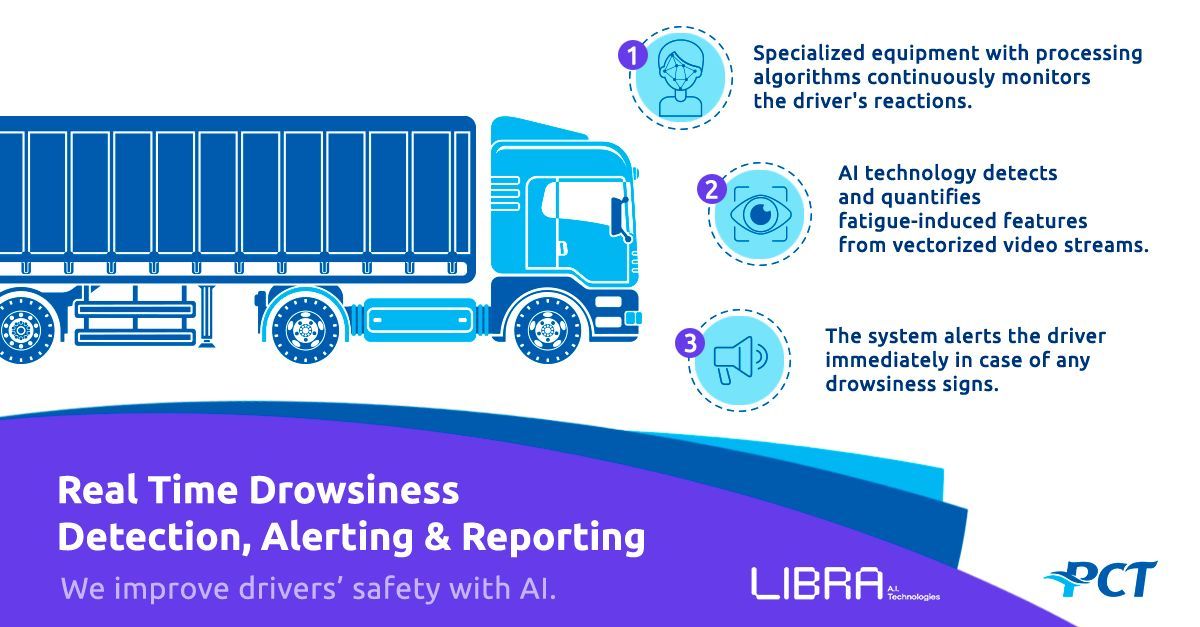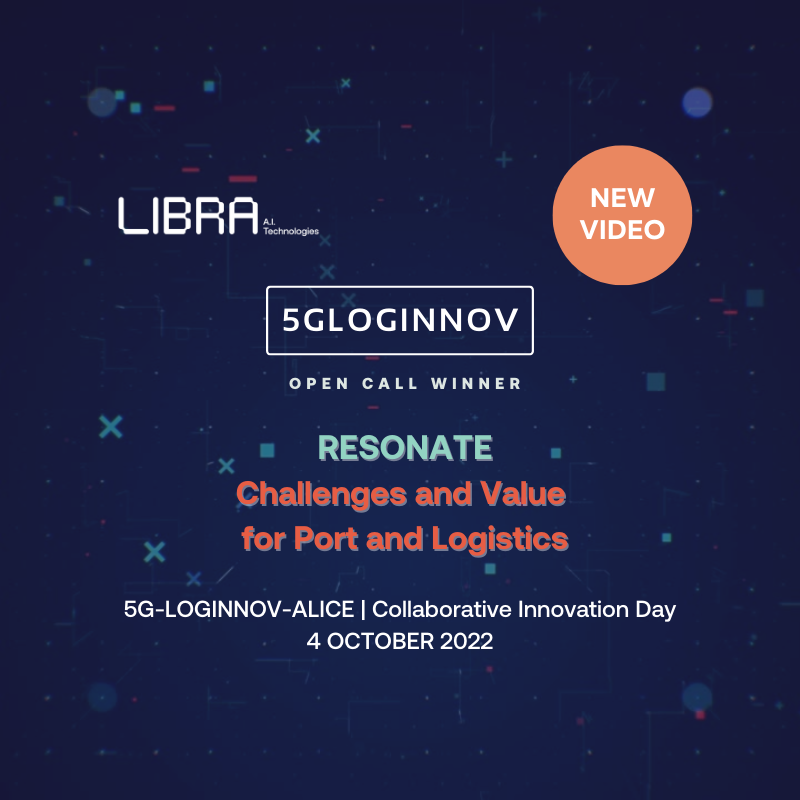The RESONATE solution that LIBRA AI develops for the Piraeus Port Container terminal was presented at the Collaborative Innovation Day on 4 October 2022. The event was organised online by the European Technology Platform "ALICE" in collaboration with the 5G-LOGINNOV project and gathered stakeholders, policymakers, Europe-wide industry associations and other experts working in the maritime, transport & logistics and 5G scopes fields to deepen the state-of-the-art and future views of 5G.
Through a video presentation, the RESONATE team of LIBRA AI had the chance to present the challenges the company faces in developing a 5G enabled Computer Vision system that detects the fatigue of professional drivers in the port terminal and its added value for ports and logistics.

The Challenges
Developing an AI-system prototype for a world-class container terminal, such as the Piraeus Container Terminal (PCT), is a great business opportunity for LIBRA AI. But it is also a project that embodies several commercial and research challenges.
The first is the complexity of the design. The drowsiness detection system is a highly complicated AI-powered prototype that collects and processes a vast amount of data under demanding conditions such as strongly vibrating vehicles and challenging lighting conditions.
But, although advanced, the system will be used by employees with a lack of technical expertise; This means that we need to present insightful information out of data, real-time alerting and reporting in a simple, meaningful way. And we succeed in this through a set of interactive augmented dashboards and advanced business analytics.
Another challenge is the personal and sensitive nature of the data we are based on to monitor the signs of downness and the drivers' behaviour. So great attention is given to ensuring GDRP compliance and delivering a reliable and trustworthy tool to our end-users. We also guarantee that the video stream will not be recorded since it is processed on-the-fly.
Other challenges we face are relevant to real-time analytics performance. For those, 5G technology provides answers.
The role of 5G
Our drowsiness detection system takes advantage of the low latency 5G offers in the connections between different devices, enabling it to take action in real-time.
In other words, 5G helps us eliminate the time an event occurs -for example, the signs of drowsiness- to the actions taken; in this case, alerting the driver to prevent a potential accident.
In addition, with 5G, communication among many connected devices is faster and more reliable.
Those advances assist the LIBRA AI System in collecting accurate data and process them on high-performing cloud-based Machine Learning services.
Added Value
The Driver Drowsiness detection system LIBRA AI develops for the 5GLoginnov Athens Living Lab is expected to have significant value for the port and logistics sector.
Today's commercial detection technologies are expensive, often producing many false positives;
Our solution will help optimise port operations and enhance public safety at a lower cost with strong privacy guarantees.
The system's primary objective is to ensure professional drivers' safety by preventing fatigue-caused accidents.
By contributing to the creation of a zero-accident environment, this intelligent system is expected to eliminate potential causes for delays and enhance productivity and higher return on investment while helping increase privacy and meet the requirements set by the GDPR.
The event closed with two interactive workshops, one of which focused on the Athens Living Lab and the operation of the developed 5G systems and services, part of which is the RESONATE solution.
You may find the LIBRA AI video presentation on the LIBRA AI YouTube Channel.

